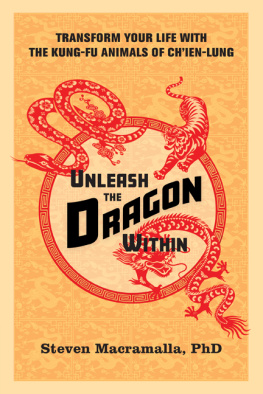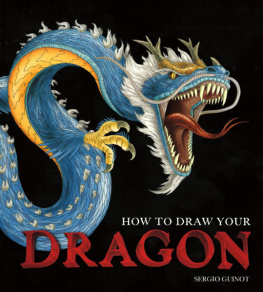Steven Harper - The Dragon Men
Here you can read online Steven Harper - The Dragon Men full text of the book (entire story) in english for free. Download pdf and epub, get meaning, cover and reviews about this ebook. genre: Romance novel. Description of the work, (preface) as well as reviews are available. Best literature library LitArk.com created for fans of good reading and offers a wide selection of genres:
Romance novel
Science fiction
Adventure
Detective
Science
History
Home and family
Prose
Art
Politics
Computer
Non-fiction
Religion
Business
Children
Humor
Choose a favorite category and find really read worthwhile books. Enjoy immersion in the world of imagination, feel the emotions of the characters or learn something new for yourself, make an fascinating discovery.

- Book:The Dragon Men
- Author:
- Genre:
- Rating:4 / 5
- Favourites:Add to favourites
- Your mark:
- 80
- 1
- 2
- 3
- 4
- 5
The Dragon Men: summary, description and annotation
We offer to read an annotation, description, summary or preface (depends on what the author of the book "The Dragon Men" wrote himself). If you haven't found the necessary information about the book — write in the comments, we will try to find it.
The Dragon Men — read online for free the complete book (whole text) full work
Below is the text of the book, divided by pages. System saving the place of the last page read, allows you to conveniently read the book "The Dragon Men" online for free, without having to search again every time where you left off. Put a bookmark, and you can go to the page where you finished reading at any time.
Font size:
Interval:
Bookmark:
Steven Harper
The Dragon Men
THE STORY SO FAR
Once again, we feel it necessary to pause our thrilling narrative to catch our readers up. Friends familiar with events in The Doomsday Vault and The Impossible Cube should immediately flip to chapter one and begin there. Those who have not read those most excellent and fascinating volumes are discreetly encouraged to find and peruse them forthwith.
However, should those books (enthralling though they are) be unavailable, or should the gentle reader simply need a reminder about the various events leading up to the ones in this volume, the following information may prove useful.
In 1750, a new plague entered the world. Most who caught it died of fever and respiratory distress. Those few who survived this stage were often left crippled or scarred. A great number experienced dementia, loss of muscle tone, photosensitivity, and thinning of the skin, which led to open sores and necrotic tissue. These unfortunates were inevitably dubbed plague zombies, and they lurched through towns and cities, spreading the disease even further.
However, for perhaps one plague victim in a hundred thousand, the disease made the brain come together instead of fly apart. For these rare people, fields of study such as physics, mathematics, biology, and even art became simplicity itself. They created wonderful and terrifying inventions with the power to touch tiny microbes or rend the world in two. These men and women became known as clockwork geniuses or clockworkers. Unfortunately, their grip on reality inevitably slipped, and they thought nothing of destroying human life, or even the entire world, in the pursuit of their own experiments. Within three years of contracting the plague-often sooner-each one went utterly mad and died, allowing others to rise.
Most countries feared plague zombies and clockworkers, but China and the British Empire cheerfully set about harvesting the latter, using their inventions to divide the world between the empires. The delicate balance of power was maintained by Englands captive clockworkers and Chinas hidden force of Dragon Men, which is the name by which clockworkers were known in Asia.
As a precautionary measure, the British Crown created the Third Ward, an underground police force dedicated to hunting down clockworkers anywhere in the world and bringing them back to London, where they were sequestered in hidden laboratories and encouraged to create their fantastic inventions for the benefit of the Empire. One of the more notorious examples was a German clockworker named Dr. Clef, who created a device known as the Impossible Cube, with which he could manipulate time itself.
The Third Ward worked hard and in secret to maintain the balance of power between the two world empires. After all, with balance comes peace. However, recent events have threatened this balance.
In 1842, England managed to gain a distinct advantage through a conflict that eventually became known as the First Opium War. In the aftermath of this conflict, England forced China into a number of trade concessions that severely damaged Chinas economy. Most notably, British merchants were now allowed to sell their (much cheaper) goods to Chinese buyers. The conflict also demonstrated to China that when it came to war, the British clockworkers had gained a definite edge over the Dragon Men. By 1857, Chinas economy had only recently begun to recover.
It was then that Gavin Ennock and Alice, Lady Michaels, accidentally destroyed the British Empire.
Perhaps accidentally is too strong a word. The destruction was actually more of a side effect. The reader must understand that, for reasons detailed in that most compelling of books, The Doomsday Vault, Gavin became infected with the clockwork plague, and Alice learned that the Third Ward, fearing an upset in the balance of world power, had locked the cure away in that eponymous repository. The only way to save Gavins life was to steal the cure from the Doomsday Vault.
This Alice and Gavin did quite handily. In the process, Gavin destroyed Dr. Clefs Impossible Cube (much to that clockworkers chagrin), and Alice found herself in possession of an iron gauntlet that used her own blood to cure plague victims. Recipients would also spread the cure each time they coughed or sneezed, allowing the cure to diffuse more quickly.
Unfortunately, this meant the end of British clockworkers and the end of new clockworker inventions. In the four or five years it would take for the cure to spread to Asia, China would gain an insurmountable advantage over Britain and forever rule the world.
With no more clockworkers to hunt or guard, it was also the end of the Third Ward.
All this meant very little to Alice Michaels and Gavin Ennock, for the cure had one catch-it didnt help clockworkers. And Gavin turned out to be one of the few.
While the clockwork plague elevated Gavins intelligence and eroded his sanity, Alice determined that if the Third Ward held a secret cure for plague zombies, Chinas Dragon Men might have one for clockworkers. Alice and Gavin fled across Europe toward China in the Lady of Liberty, Gavins own airship. Joining them were Dr. Clef and a clockwork cat named Click. Pursuing them with the intent of bringing them to justice was Lieutenant Susan Phipps, at one time the head of the Third Ward and more recently out of a job.
During an eventful stop in Luxembourg for events chronicled in a delightful book titled The Impossible Cube, Gavin heard an astonishing rumor that his father, thought long dead, might still be alive, and Alice heard a dreadful prediction that if she didnt let Gavin go, the world would perish in flood and plague.
When the group arrived in Kiev mere steps ahead of Lieutenant Phipps, Dr. Clef managed to open a portal through time and reach backward through the time-stream to snatch his Impossible Cube at the moment it was destroyed. A related outcome would also have destroyed the entire universe, a possibility which caused everyone concerned a certain amount of alarm. Alice and Gavin did manage to stop him, but only at great personal cost.
Unfortunately, the time portal, which proved deadly to all who touched it, remained open and was drawing Alice and Gavin in. They were rescued at the last moment by Lieutenant Phipps, who had come to realize saving millions of actual lives from the clockwork plague took precedence over her perceived duty to the British Empire. Once the consternation of the near destruction of the universe faded, Phipps insisted on accompanying Gavin and Alice to China and on helping them spread the cure along the way.
The clockwork plague continues its terrible march through Gavins mind, and time is running short. Dr. Clef once estimated Gavin had at most three or four months to live, and their journey to China would take a minimum of ninety days. Gavin might, of course, go mad and die much sooner.
Meanwhile, the Impossible Cube sits in a cupboard aboard the Lady of Liberty while Gavin pilots the ship to China and Alice prays they make it in time.
We also wish to let the reader know that when transliterating Chinese into English, it is customary in some circles (including this one) to render the sh sound with a q or an x. Therefore Qing is pronounced shing and Qilin is pronounced sheelin, while Xianfeng is sheeanfeng and Cixi is keeshee. Why transliterators use a q or x instead of the more straightforward sh, we cannot hazard a guess, beyond the possibility that both letters simply look smashing.
Chapter One
I still think this is a terrible idea, said Alice.
Gavin spread his mechanical wings, furled them, and spread them again. He shrugged at Alices words and shot a glance across the deck at Susan Phipps, who set her jaw and tightened her grip on the helm. Her brass hand, the one with six fingers, gleamed in the afternoon sun, and a stray flicker of light caught Gavin in the face. The world slowed, shaving time into transparent slices, and for one of them he felt trillions of photons ricochet off his skin and carom away in rainbow directions. His mind automatically tried to calculate trajectory for them, and the numbers spun in an enticing whirlpool. He bit his lip and forced himself out of it. There were more important-more
Font size:
Interval:
Bookmark:
Similar books «The Dragon Men»
Look at similar books to The Dragon Men. We have selected literature similar in name and meaning in the hope of providing readers with more options to find new, interesting, not yet read works.
Discussion, reviews of the book The Dragon Men and just readers' own opinions. Leave your comments, write what you think about the work, its meaning or the main characters. Specify what exactly you liked and what you didn't like, and why you think so.




